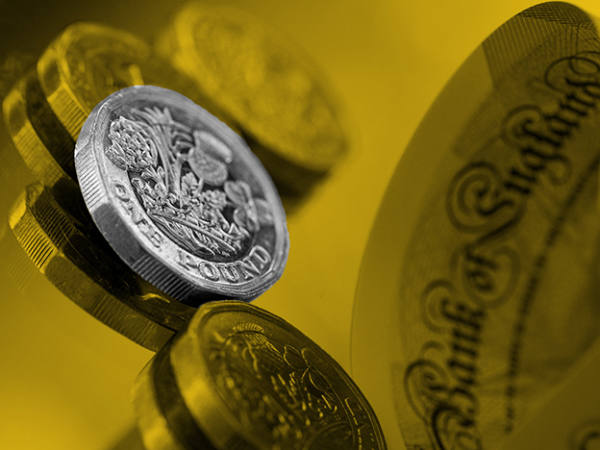- Fundsmith looking to minimise disruption – and reassure investors – whenever its founder passes the baton
- Associating a brand with a key individual is an issue from a risk management perspective
Recent events indicate that Terry Smith may take the view that the best time to mend a roof is when the sun is shining.
Though you wouldn’t think that the Fundsmith Equity Fund requires any remedial actions – it boasts a cumulative return of 126 per cent over the past five years – its founder is taking steps to ensure that any future transition of managerial responsibilities will be as seamless as possible.
Though the founder is not actively considering retirement, he has highlighted succession plans. Whenever that transpires, by design or otherwise, it may be that the fund’s head of research, Julian Robins – a highly influential figure – will take up the reins, although there may be other strong candidates in the running*.
And it will be a clean break. If he ever vacates the top job, Smith plans to relinquish control by offloading his majority position in the fund to its remaining staff – a somewhat complicated process one would imagine.
Nevertheless, his determination to avoid a disruptive hand-over highlights the issue of key person(s) dependency risk. The term is probably self-explanatory, but the risk arises when a business is overly reliant on an individual – or a small cohort – who generate a wholly disproportionate level of value (or perhaps are simply thought to do so). Think Steve Jobs at Apple (US: AAPL), or perhaps even Akio Morita, founder of Sony Corp (TYO: 6758).
Fundsmith came into being after its founder recognised that many actively managed funds were saddling investors with unnecessarily high fee structures. He decided to keep it simple. A relatively small number of prospective blue-chip constituents, all of which with similar DNA: consistently strong free cash flow yield; a high return on capital; a balance sheet unencumbered by excessive borrowing; and a solid operating margin. In short, the kind of companies that outperform over the long term.
Essentially the fund reflects the founder’s investment philosophy where equities are concerned. You imagine it’s a relatively low-maintenance affair, but the point is that the fund should continue to prosper if the founder's values remain at the heart of the decision-making process following his departure.
The Fundsmith chief executive has not only taken a proactive stance on the transition, but his determination to offload the lion’s share of his holding suggests that he doesn’t want to be seen by his successor as Banquo’s ghost – absent but ever-present nonetheless.
Edsel Ford certainly had to deal with the spectral presence of his illustrious father, the pioneering industrialist Henry Ford, after the old man gave him the keys to the family business in 1919.
During Edsel’s quarter-century at the helm, Ford Motor Company (US: F) consistently lost ground to US rivals General Motors (US: GM) and Chrysler, largely because Ford Snr was unwilling to move away from Model T production despite the best efforts of his son – the nominal head of the automaker. Unfortunately, the family scion, who died prematurely in 1943, was never able to step out of his father’s shadow.
This was a transition gone badly awry – or an effective non-transition, depending on which way you look at it. There are dynastic overtones to the Ford saga, yet the past 20-30 years has seen the emergence of key person risk in corporations that have promulgated what might be described as a cult of personality.
The founders of Facebook (US: FB), Tesla (US: TSLA) and Amazon (US: AMZN) are every bit as well-known as the corporations themselves. It is difficult to assess the extent to which the high profiles afforded to Messrs Zuckerberg, Musk and Bezos act as an effective marketing tool, or if they simply reflect a degree of hubris. But it may be that associating a brand so closely with a key individual could become burdensome for a successor once that person departs.
Take Apple, for example. Admittedly, Tim Cook – and the company generally – have fared well since the founder’s untimely passing. However, that transition was a long time in the making due to the nature of Jobs’ illnesses. At any rate, the group probably faced a greater challenge in 2019, with the departure of Jony Ive, its longstanding chief design officer, who played a key role in the design of its iconic product range, including the iPod, iPhone, iPad and MacBook.
And there are those who will tell you that Microsoft (US:MSFT) has been lacking in creative dynamism since the departure of Bill Gates, even though the group’s co-founder, Paul Allen, may have been the key driver of innovation anyway. Could it be, however, that Microsoft was simply one of the first movers in what is now a mature industry and that its technological progress is measured in increments, rather than what must have seemed radical leaps in its formative years?
Fundsmith is putting out the right signals in readiness for its supremo’s departure, while the likes of Apple and its big tech rivals have processes (and insurance policies) in place to delineate risk away from any one individual. Yet it’s hard to get away from the endless corporate mythologising associated with Silicon Valley. The reality could simply be that key-person dependency is more of an issue for small- and medium-sized businesses, or those establishing their place in the market.
*This paragraph has been amended to reflect the fact that Terry Smith is not actively considering retirement.











